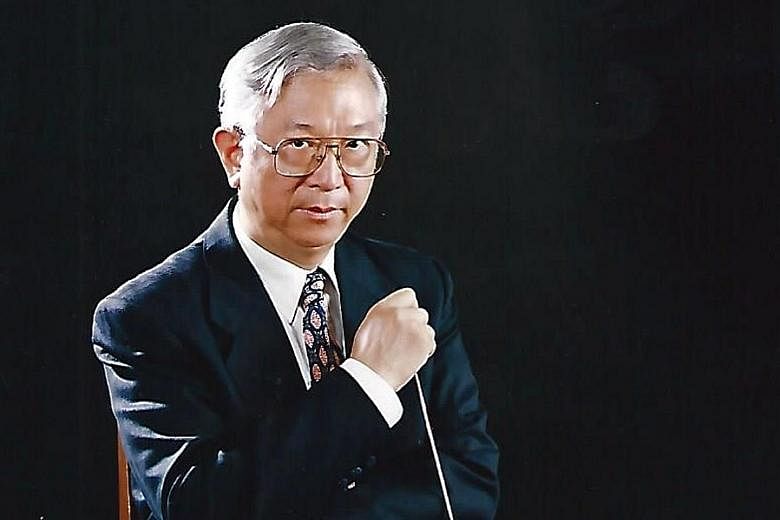Chinese composer and conductor Gu Guan Ren, whose compositions have been widely acclaimed in China, specialises in sizhu or silk and bamboo music, a type of gentle, elegant chamber music originating from the Jiangnan region in China at the southern tip of the Yangtze river.
The 74-year-old, who is married with two sons, speaks to The Straits Times in an e-mail interview ahead of Tunes From A Teahouse, a silk and bamboo music concert conducted by him and featuring the Shanghai Chang Qiao Shenyun Silk And Bamboo Ensemble and Singapore's Ding Yi Music Company.
How did you get started in music?
I have learnt traditional instruments from a young age, playing a lot of silk and bamboo music. In 1957, I got into the Shanghai Chinese orchestra as a pipa musician, so I started performing. But I also learnt music theory and started composing and I did well.
Later, I became the source of a conflict because some people in the orchestra wanted me to perform, while others wished for me to learn composing. In the end, the orchestra sent me to study composition at the Shanghai Conservatory of Music.
How do you make your compositions different?
I worked in the Shanghai Opera Company for eight years and it exposed me to folk music such as Kun and Peking opera. I wrote music for opera troupes and composed for operas. I also spent time learning traditional folk music. These experiences expanded my music vocabulary, which shows in my compositions.
Do you have any pre-show rituals?
I am not someone who gets nervous, whether I am performing or conducting. I suppose I am naturally accustomed to being on stage.
I read the scores thoroughly in rehearsal and I ensure my movements are precise when I conduct, especially if they are difficult and speedy ones. I practise them repeatedly so that I don't have problems on stage.
What is special about silk and bamboo music, compared with other types of instrumental music?
Chinese instrumental music has a long history and can be divided into different genres, such as Xi'an drum music, Hebei wind and percussion music and Teochew silk music. Each is unique due to its geographical location and dialect, instrumentation and performing technique.
-
BOOK IT /TUNES FROM A TEAHOUSE
-
WHERE: Esplanade Recital Studio, 1 Esplanade Drive
WHEN: Saturday, 7.30pm
ADMISSION: $25 from Sistic (call 6348-5555 or go to www.sistic.com.sg)
Silk and bamboo music is passed down from generation to generation by means of spoken instruction and demonstration. And you have to train the musician over time. In our modern society, there are fewer and fewer young musicians who have the passion to learn it and pass it on.
Recently, some new composers have refreshed the genre by incorporating new composition techniques and these new works have been well received. Orchestras from Macau, Hong Kong, Beijing and Jiangsu have performed them.


